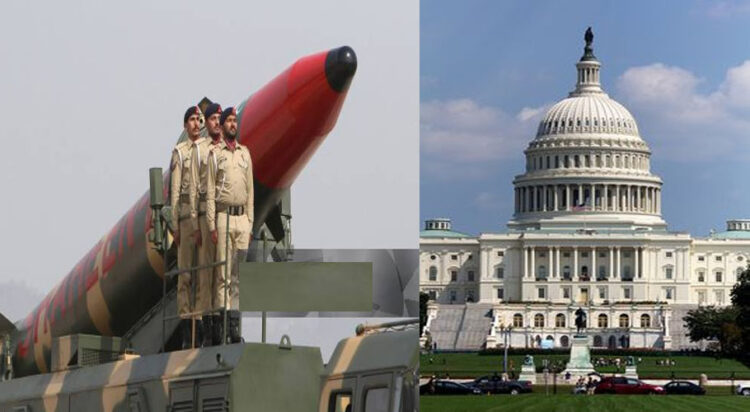Pakistan’s development of long-range ballistic missile capabilities has raised serious concerns within the United States, with claims that these advancements could eventually allow Pakistan to strike targets far beyond South Asia, including the United States, according to a senior White House official.
This alarming assertion comes just a day after the US imposed sanctions on Pakistan’s state-owned missile development agency and three vendor companies. Deputy National Security Adviser Jon Finer, speaking at the Carnegie Endowment for International Peace, expressed deep concerns about Pakistan’s missile program, questioning its purpose and suggesting it could pose a potential threat to the US.
Finer pointed out that Pakistan’s advancements in missile technology, including long-range ballistic systems and larger rocket motors, indicate that the country may soon be able to target regions well beyond its immediate vicinity, possibly reaching the United States. “These developments raise real questions about the aims of Pakistan’s missile program,” Finer said. “If these trends continue, Pakistan will have the capability to strike targets well beyond its immediate region.”
Finer’s comments came in the wake of the US State Department’s announcement of sanctions against Pakistan’s National Development Complex (NDC) and three Karachi-based companies—Akhtar and Sons Private Limited, Affiliates International, and Rockside Enterprise. The sanctions were imposed under Executive Order 13382, targeting entities involved in the proliferation of weapons of mass destruction and their delivery systems.
While Pakistan’s Foreign Office has yet to officially respond to Finer’s remarks, it had previously condemned the sanctions as “discriminatory” and warned that they could exacerbate regional power imbalances.
During a State Department briefing, spokesperson Vedant Patel reiterated US concerns regarding Pakistan’s missile program, describing the sanctions as part of a broader effort to maintain the global non-proliferation regime. “The designations reflect our long-standing concerns about Pakistan’s long-range ballistic missiles,” Patel said. “The US remains committed to protecting its national security and ensuring its financial systems are not exploited by proliferators. We aim to engage constructively with the Pakistani government on this issue.”
This latest move underscores the growing unease in the US about Pakistan’s missile advancements and highlights the ongoing calls for transparency and adherence to international security standards.


































